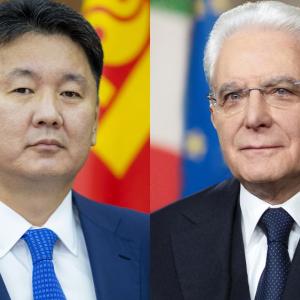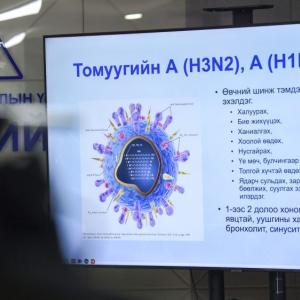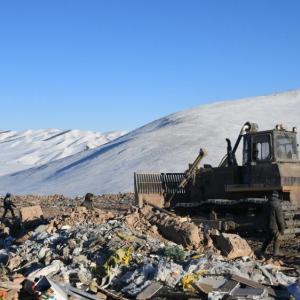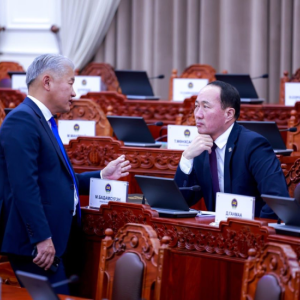Parliament adopts bill on ratification of the Treaty on the Prohibition of Nuclear Weapons
Politics
Ulaanbaatar/MONTSAME/. At the plenary meeting of the Parliament on October 22, a Bill on the ratification of the Treaty on the Prohibition of Nuclear Weapons was approved by major votes of MPs.
Minister of Foreign Affairs B. Battsetseg introduced about the bill, saying, “At the 47th Session of General Assembly in 1992, Mongolia declared its territory as a single-State nuclear weapon free zone. In the past 29 years, it has been working to create a legal basis as well as status internationally guaranteed by Member States of the United Nations."
Mongolia’s declaration of its territory as a single-State NWFZ has been widely welcomed and supported by the international community. Consequently, the 53rd United Nations General Assembly adopted the resolution on ‘Mongolia’s international security and nuclear-weapon-free status’ in 1998. Since then, the resolution ‘Mongolia’s international security and nuclear-weapon-free status’ is being adopted every two years according to the report on the implementation of this resolution issued by the UN Secretary-General.
In support of Mongolia’s status, the permanent members of the United Nations Security Council (aka P5) adopted a Joint Statement in 2000 and signed a Joint Declaration in 2012.
Mongolia ratified Treaty on the non-proliferation of the
nuclear weapons in 1969 and Comprehensive Nuclear-Test-Ban Treaty in 1997
respectively. After that, there was a
need to adopt a domestic legal act, which defines and confirms the country’s nuclear-weapon-free
status. In 2000, the State Great Khural (Parliament) of Mongolia passed the Law
on Mongolia’s Nuclear Weapon-Free Status and Resolution No. 19 on related
measures, and the Resolution No: 60 aimed at strengthening further Mongolia’s
nuclear-weapon-free status in 2015.
A resolution A/RES/71/258 on taking forward multilateral
nuclear disarmament negotiations was adopted by the General Assembly on
December 23, 2016.
As of May, 2021 86 countries signed the Treaty on the Prohibition of Nuclear Weapons, or the Nuclear Weapon Ban Treaty, and 54 countries ratified or acceded to the treaty. According to 15.1 of the treaty, the Treaty has entered into force on January 22, 2021.
The Treaty is aimed to motivate countries for disarmament, encourage effective, safe and irreversible elimination of nuclear weapons within time-bound framework, and contribute to the complete elimination of nuclear weapons globally.
The Treaty fully supports the peaceful use of nuclear energy in agriculture, medicine, science and energy production. The prohibition, obligation and implementation provisions of the treaty will play an important role in strengthening the humanitarian purpose of the treaty and international norms against nuclear weapons.
Article 4.1 of the law on Mongolia’s Nuclear-Weapon-Free Status states that an individual, legal person or any foreign State shall be prohibited on the territory of Mongolia from committing, initiating or participating in the acts or activities related to nuclear weapons. Disarmament, non-proliferation and control-related issues are coordinated within the Treaty on the non-proliferation of the nuclear weapons and Comprehensive Nuclear-Test-Ban Treaty.
As a country, which always supports the negotiations on the establishment of international legal instruments on the prohibition and elimination of nuclear weapons, as well as the relevant UN resolutions and decisions on this issue, Mongolia needs to reaffirm this position. The provisions of this Treaty meet the fundamental interests of national security and are in full compliance with the Constitution of Mongolia and other laws.
"Mongolia’s ratification of the Treaty is important to strengthen its position on nuclear disarmament and non-proliferation and to actively participate in dialogues, conferences and events on this issue,” noted the Minister.
 Ulaanbaatar
Ulaanbaatar














































































